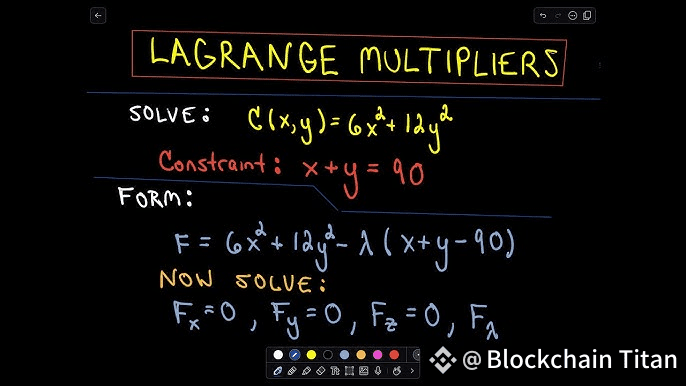Every trader knows the toughest choices happen under constraints. You don’t have unlimited capital, unlimited time, or unlimited options. The art of trading lies in optimizing your decisions within those limits. That’s exactly where Lagrange Multipliers come in.
What Are Lagrange Multipliers?
At its core, it’s a mathematical method to find the best possible outcome when certain restrictions are in place. Instead of blindly searching for profit, it helps you calculate the maximum or minimum value of a function while obeying the rules of the system.
Why Does This Matter in Trading?
The financial world is full of constraints:
Limited capital allocation across different assets.
Risk management rules like stop-loss levels.
Regulatory restrictions on positions.
Even psychological limits like risk tolerance.
Lagrange Multipliers represent how much your objective (like profit) would improve if you could relax just one constraint. It’s like a hidden signal that tells you: where is my next best move?
A Trader’s Analogy
Imagine you’re diversifying a portfolio. You want maximum returns, but you must stick to a budget and maintain risk exposure under a set level. Lagrange Multipliers work in the background like a calculator, telling you the optimal allocation that balances all these conditions.
Beyond Finance
This tool isn’t just about trading. Engineers use it for resource allocation, economists for efficiency models, and data scientists for machine learning. In crypto, it mirrors how protocols optimize liquidity pools, staking rewards, or yield strategies while keeping systems secure and stable.
Bottom Line
Smart decisions aren’t just about chasing numbers—they’re about working within limits and still reaching the most favorable outcome. That’s the power of Lagrange Multipliers. The math may be complex, but the insight is simple: knowing how to optimize under constraints is what separates lucky trades from calculated wins.
@Binance Italy #CryptoEducation #Binance #PowellWatch #CryptoIntegration #CryptoIntegration

